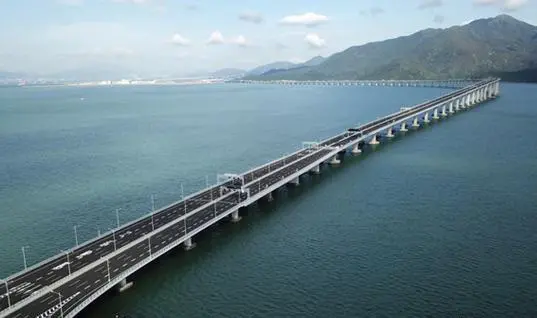PKG
INTRO
The Communist Party of China last week released a roadmap for the Shanghai pilot Free Trade Zone (FTZ).
The decision to build more free trade zones in the country is expected to further open up the economy and stimulate growth.
Today, we talk to London-based professor Danny Quah on the topic.
PKG
The Shanghai FTZ covers 29 square kilometers in four areas of Shanghai, China's financial hub.
By the end of October, over 200 companies had set up in the zone.
The zone is now operating under the framework of an administrative regulation and five other documents.
The measures include a "not-to-do list" for foreign investors instead of a "to-do list."
But, there are doubts that if the authorities restrict companies to conduct their business only within the zone, the impact could be very small.
Professor Quah defends the approach, saying it's consistent with the development trend of international investment rules.
SOUNDBITE (ENGLISH): DANNY QUAH, London School of Economics and Political Science
"I think, it is actually very much the plan that if you want to restrict your activity within a zone, you want the impact to be small, in the sense that you want to see whether it works or not. If, you know, if you are unable to have that level of experimentation, there is a huge risk that you are moving into. In fact, no country, yet, has ever tried to take on those kinds of large risks. That the Chinese government is doing this is just very consistent with good management practice. It's what we hope."
The Chinese government also pledges to give businesses more freedom in the zone by slashing administrative powers.
...and allow markets and the private sector to play a bigger role.
SOUNDBITE (ENGLISH): DANNY QUAH, London School of Economics and Political Science
"This is not to say that the state-own enterprises establish interests in the political structure are no longer important. They are very important, they will continue to be very important. They will continue to be a great need for collaboration between those interests and the new ones that are emerging that will see China's people move from the current practice to a new practice. There will be a great need for collaboration and as that collaboration proceeds, what China will find, works for itself, will emerge."
The reform roadmap notes that on the basis of pushing forward development of the existing pilot FTZ, qualified regions will be selected to build free trade zones or ports.
That has triggered some local governments to apply for similar zones to help their own economic growth.
Professor Quah says the success of Shanghai FTZ is crucial for accelerating FTZ construction in the country.
SOUNDBITE (ENGLISH): DANNY QUAH, London School of Economics and Political Science
"And I think that's the right approach. Whether the Shanghai pilot free-trade zone and a few others could potentially start up, Tianjin and others, Guangdong, other places that want to have similar kind of experimentation. Whether it will be a game changer for all of China, actually depends very much on whether it will be a success in Shanghai. If this is a success, subject to control, subject to great care, it could potentially be rolled out across all of the mainland and it will be a game changer if that happens, not just for China, but for the world more generally."
Quah adds the Shanghai FTZ will help detect weaknesses in traditional development patterns, which will bring further reform.
 简体中文
简体中文

